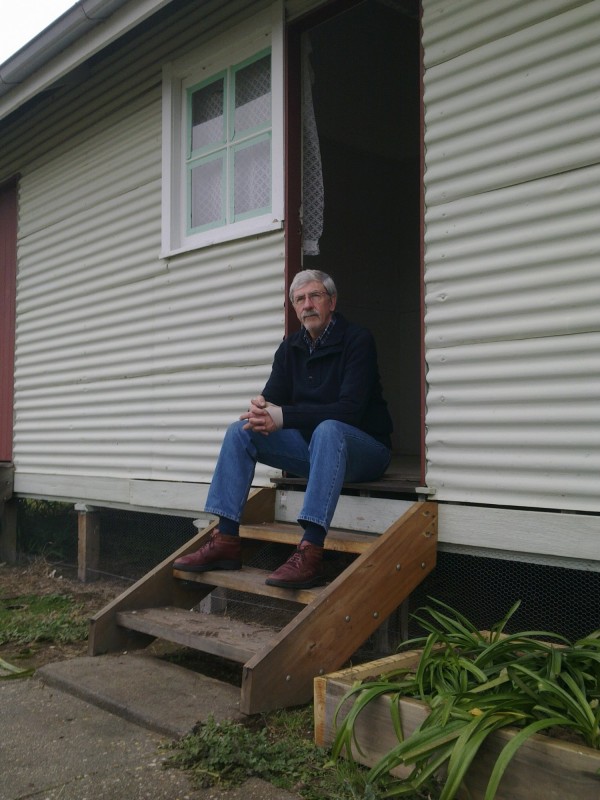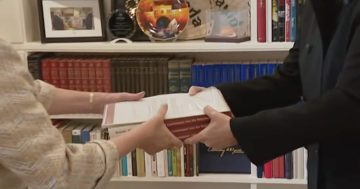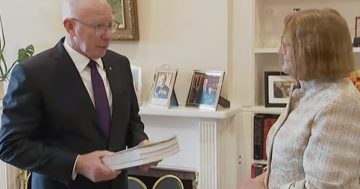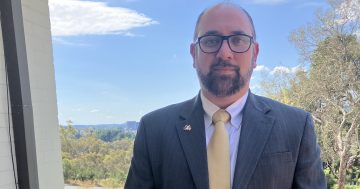
Did you hear the one about the Irishman who didn’t speak to his wife for two months after the birth of their twin boys? She wouldn’t tell him the name of the father of the other one!
Feeble joke but an example of what you can’t say now in public. According to Section 18C of the Racial Discrimination Act (RDA), this joke is likely to cause offence, insult and humiliate a race of people – the Irish. Mmmm!
When I was growing up on the migrant hostel and later in primary and secondary school, I was taunted and bullied for being a “pommie bastard”. Now I know my parents were married just before I was born so I know the second part is not true but I fess up to the first bit. Was I offended? Insulted? Humiliated? Intimidated? Abso bloody lootely! And how did I deal with it as a kid?
The first thing I did was to get rid of my Brummie accent. The second was to develop defence mechanisms. Fight or flight? I fought. Firstly I struck back physically and won most of my fights by at least 50 metres. Next, I worked out that offence is better than defence. I took the mickey out of other unfortunate kids. Diversionary tactics. Italians were prime targets as wogs, Scandinavians were white wogs, Asians (although I didn’t see many of those guys until well into my teens) copped it, our indigenous folks came in for a hammering. And then when I was defending myself, I found that my comments had a comedic result and I became aware of racial jokes. Books were written on them, TV series were made around racial difference and the humorous aspects of difference. It became not only accepted, almost expected, that one would make jokes about different racial groups.
But was I, in my tender years, trying to offend, insult, humiliate? Not really. I just had a misunderstanding of the effect I was having by the expression of my own favoured comedy.
Was I in breach then of the RDA as it now reads? I checked it out.
18C of the RDA says at clause (1) it is unlawful for a person to do an act, otherwise than in private, (my emphasis) if:
(a) The act is reasonably likely, in all the circumstances, to offend, insult, humiliate or intimidate another person or a group of people, and
(b) The act is done because of the race, colour or national or ethnic origin of the other person or of some or all of the people in the group.
Clause (2) clarifies what is meant by “in private” by saying “For the purposes of subsection (1), an act is taken not (my emphasis) to be done in private if it:
(a) Causes words, sounds, images or writing to be communicated to the public; or
(b) Is done in a public place; or
(c) Is done in the sight or hearing of people who are in a public place”
And defines a public place as including any place to which the public have access as of right or by invitation, whether express or implied and whether or not a charge is made for admission to the place.
During the debate in the media and in Parliament, reference was made of the exemptions given at Section 18D. This is the cop-out clause.
It says Section 18C does not render unlawful anything said or done reasonably and in good faith:
(a) In the performance, exhibition or distribution of an artistic work; (my emphasis) or
(b) In the course of any statement, publication, discussion or debate made or held for any genuine academic, artistic or scientific purpose or any other genuine purpose in the public interest; or
(c) In making or publishing:
(i) A fair and accurate report of any event or matter of public interest; or
(ii) A fair comment on any event or matter of public interest if the comment is an expression of a genuine belief held by the person making the comment. (my emphasis)
So if I’m at the footy and I give a player a razz because they are of an ethnic grouping that I bagged when I was a kid, I am in breach of the RDA because the player could take offence, feel intimidated or humiliated and so to could some around me feel so insulted if they were sympathetic to umpires. The Adam Goodes example is a good one. But if I am at my place watching the footy on TV and in the company of some mates, and I say the same things I’m not in breach because it is not a public place.
If I go to a pub and tell a racist flavoured joke, even against myself (as I’m wont to do), because it’s in a public place and someone in the vicinity may take offence or feel humiliated, I am in breach of the RDA.
But if a comedian on stage during, in his view an artistic performance, tells a joke about black people in America, he’s fine.
And if I’m Pauline Hanson, I may not be in breach because she genuinely has the belief that Muslims, Asians and anyone who is not of Caucasian and probably Anglo-Celtic extraction, with red hair and the culinary preferences for chish and fips, are to be pilloried, attacked as not having the same values as the rest of us, because she does so in the public interest. Section 18C should not be tampered with, but 18D perhaps should.
Those seeking to water down the protections against racial vilification, just don’t get the reason for the provisions.
They are consistent with the International Convention on the elimination of all forms of racial discrimination, particularly section 3 (1); article 2; article 4 and article 5. In the interests of space, I invite readers to Google those pieces.
It is about intention. If it is one’s intention to diminish, insult, humiliate or intimidate, then there is an offence. Full Stop! For too long, it was possible to insult under the guise of comedy, it was possible to diminish because it was a clever bit of phrasing, it was OK to intimidate because we were really joking, eh?
Watering down the provisions of 18C will definitely open the doors for any xenophobic individual or organisation to have open slather of the use of language with vilifies, insults, hurts, diminishes and intimidates people on the basis of where they were born, of what racial profile they have.
Martin Luther King said it correctly in his “I have a Dream” speech. He said: “I have a dream that my four little children will one day live in a nation where they will not be judged by the color of their skin but by the content of their character.” Wouldn’t it be great if this applied worldwide? And how would Hanson et al stack up?
People feel insults and hurt inside. Some react and most don’t. They suffer in silence. 18C is for those silent sufferers.
I was glad to see the Senate knock off the assault by those xenophobic dinosaurs who wanted to be able to express vile comments about other people, in the name of free speech. Free speech does not mean a licence to hurt, to humiliate, insult, offend or to vilify.
So, my good and kind-hearted friends, think about what you were like as a kid, as a teenager, as a young adult. Did you say things which in hindsight, may have been offensive to people around you and you didn’t notice? I certainly did and am I proud of it. No!
Section 18C made me sit up and look at myself. I have a great sense of humour and a faculty to be able to construct jokes. I just have to temper them from now on. Otherwise, I will truly be a Pommie Bastard!
Photo: John Hargreaves outside the Bonegilla Migrant Hostel. Photo courtesy of John Hargreaves.





















